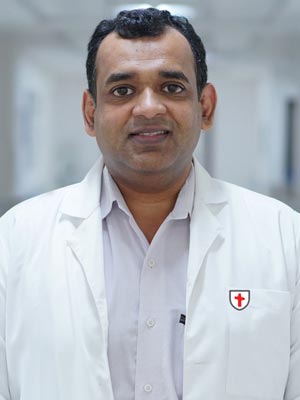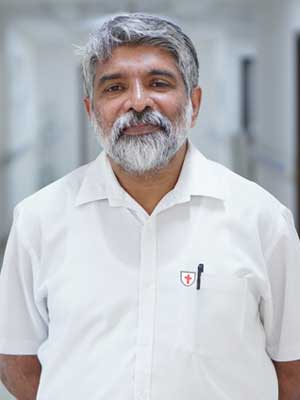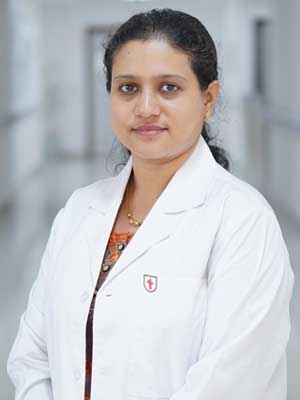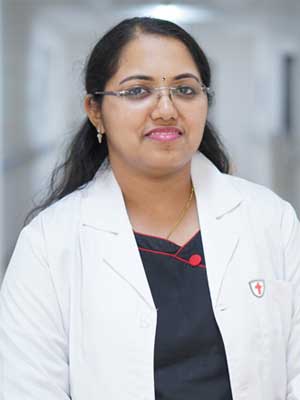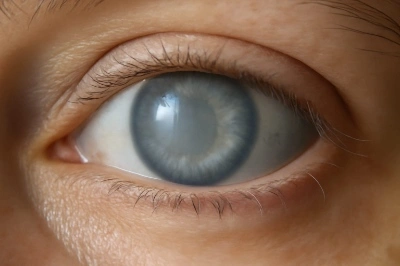Overview
The vision of the Ophthalmology Department is to be a quality eye care service provider that is recognized for providing excellent, ethical, compassionate care that is accessible for every patient. We also have a Paediatric Ophthalmology surgeon and a Vitreoretinal surgeon. The department has 4 Optometrists who have extensive experience in ophthalmic care. An efficient 20 bedded inpatient care facility is available for all admitted patients. We boasts of world-class infrastructure such as Phacoemulsification System (Infiniti by Alcon), Zeiss Lumeira microscope, OCT with Angiography (Zeiss), Green Laser (Zeiss), YAG Laser (Zeiss), Optical Biometer (Zeiss), Ultrasound A scan & B Scan, Non contact tonometry and pachymetry (Nidek).
Services
-
Cataract Surgery by Phacoemulsification and foldable intraocular lens
-
Glaucoma evaluation and surgery
-
Squint evaluation and surgeries
-
Paediatric ophthalmology services
-
Retinopathy of Prematurity evaluation and treatment
-
Medical Retina services: Diabetic retinopathy and macular degeneration
-
Surgical retina services
-
Oculoplasty Services
Specialists
FAQ
If you are healthy and not suffering from any other systemic or ocular comorbidities, you should schedule an eye exam every year. If you wear glasses or contact lenses, you should schedule your eye exam at 6 monthly intervals, especially for children. Yearly checkups are mandatory in people above the age of 40, people with diabetes, hypertension and in patients who have a family history of glaucoma.
If your eyes are watery, you can try these remedies. Rinse eyes with clean and cold water, and apply lubricating eye drops. Hot or cold compresses can work depending on the condition. If these remedies do not work, you should consult with your doctor.
-
Always wear sunglasses when going outside, especially on hot summer days.
-
Schedule your eye test at regular intervals.
-
Avoid using computers and phones for too long as this will increase the strain on your eyes. Use UV protective glasses to block the harmful rays from digital devices.
-
Always eat healthy foods like green leafy vegetables and fruits and avoid eating junk foods.
-
Discontinuation of smoking.
Cataract is an age related opacification of the lens which leads to progressive clouding of vision. It is an age related condition, but can also be seen in the younger age group. It is especially common in diabetics. Cataracts can be successfully treated by a simple surgery, called phacoemulsification, which involves removal of the cloudy lens and replacement with an artificial lens. One can prevent the early development of cataracts by consumption of a good nutritious diet, control of diabetes, protection from harmful UV rays of the sun and cessation of smoking.
It is an eye disease caused due to increased pressure inside the eyes also known as intraocular pressure. Increased eye pressure damages the optic nerve. This condition is very common in patients above the age of 50, especially if there is a family history of glaucoma. If not treated in time, it may lead to permanent visual loss.
News & Events

O.M.E.G.A
The Believers Advanced Centre for Paediatrics, in collaboration with the Indian Academy of Pediatrics,…
View this Post

Together against glaucoma !
The Ophthalmology Department at Believers Hospital and the Kerala Society of…
View this Post

O.M.E.G.A
The Believers Advanced Centre for Paediatrics, in collaboration with the Indian Academy of Pediatrics,…
View this Post

